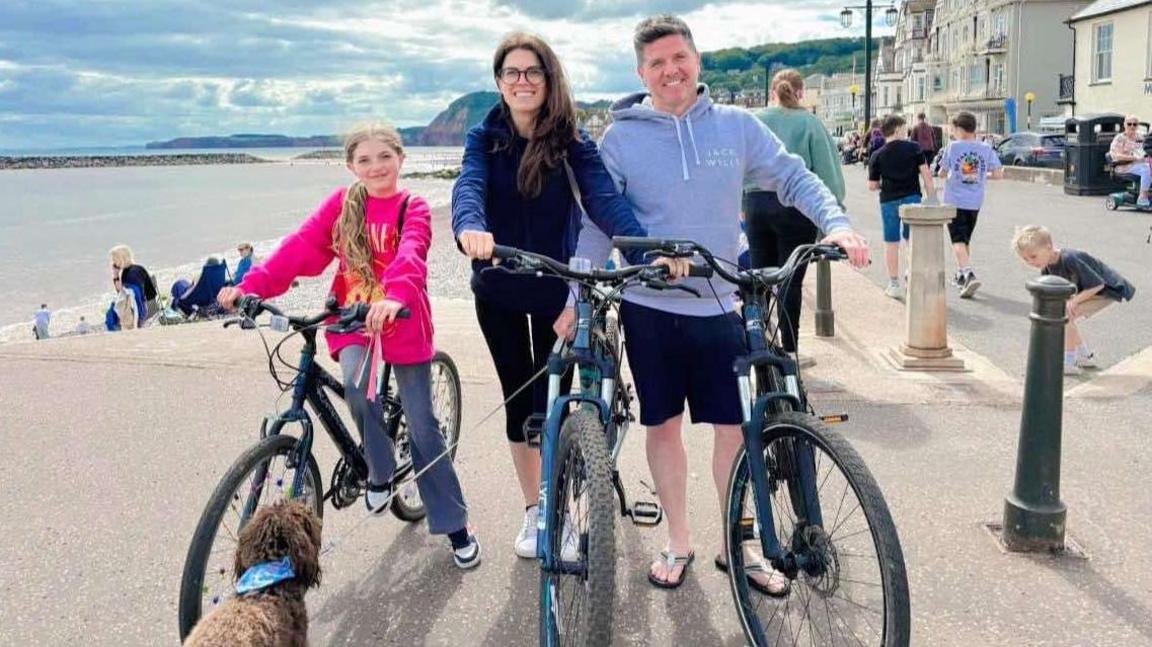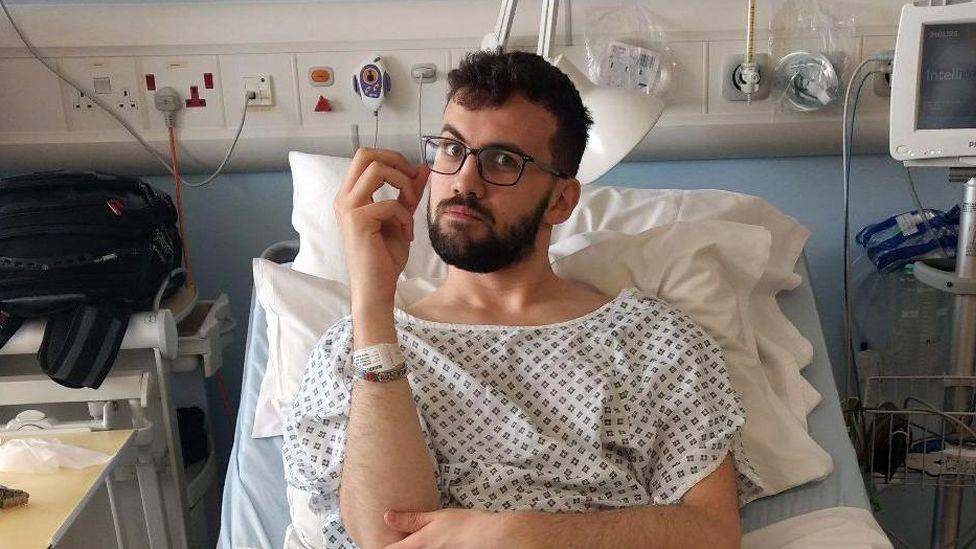'Nut allergy cure would change my daughter's life'
Listen on BBC Sounds: "Just going to the park can be difficult" - the Worcestershire girl navigating life with a nut allergy
- Published
Sofia was just a few months old when she suffered her first allergic reaction to peanuts.
"I was eating peanut butter on toast," her mother Sam remembered. "She was sat in her high chair, she picked it up off the plate and all of a sudden, over her hands, over her face, she came out in hives.
"Straight away, of course, you pick her up and start panicking, call the doctor's, and that then led to being tested."
Sofia, now 12, from Worcestershire, is one of millions of people worldwide who suffer a peanut allergy - but who have been given hope by a new study which suggest they may be able to overcome it.
The charity Anaphylaxis UK estimates about one in 200 adults, and as many as one in 50 children, external, have a peanut or tree nut allergy.
Symptoms can range from mild to life-threatening, external.
Sofia, for whom even going to see her friends requires careful planning, admits it can be frustrating.
"I have to tell all my friends, if they've had something which might have nuts in it, that they have to wash their face and hands," she explained.
Sofia's condition affects every aspect of her life, from eating at the school cafeteria to going on family holidays.
"Even just going to the park [needs consideration]," said Sam. "We have to go through this process of who's going to be there, what are you doing, is anybody eating any food, what do you do in case of an emergency, who do you need to call?
"She can't leave the house without epi-pens or medicine.
"We had a conversation [recently], and she said 'it's annoying, it's frustrating, I wish I didn't have it, I feel left out sometimes, I feel like I'm on my own'."
But that feeling may become a thing of the past. A clinical trial has suggested adults with serious peanut allergies can gradually train their bodies to tolerate the food.
Further trials are needed, however, before there is any chance of the approach being rolled out more widely.
But for Sofia, her mother says, it offers the hope of "freedom".

Sofia and her parents, Sam and Andy, have to take extra precautions when going on holiday
"I don't know whether Sofia would ever feel comfortable eating a nut," Sam said.
"However, what [a breakthrough] would mean is we can move through life with a little bit more ease. And for me, as a parent... even Sofia going to her friend's for a couple of hours, I just don't relax.
"It would be the most incredible development not only for Sofia and her lifetime, but future generations.
"It's just so reassuring to know that it's being taken so seriously."
Get in touch
Tell us which stories we should cover in Hereford & Worcester
Follow BBC Hereford & Worcester on BBC Sounds, Facebook, external, X, external and Instagram, external.
Related topics
- Published31 August 2023

- Published1 October 2021

